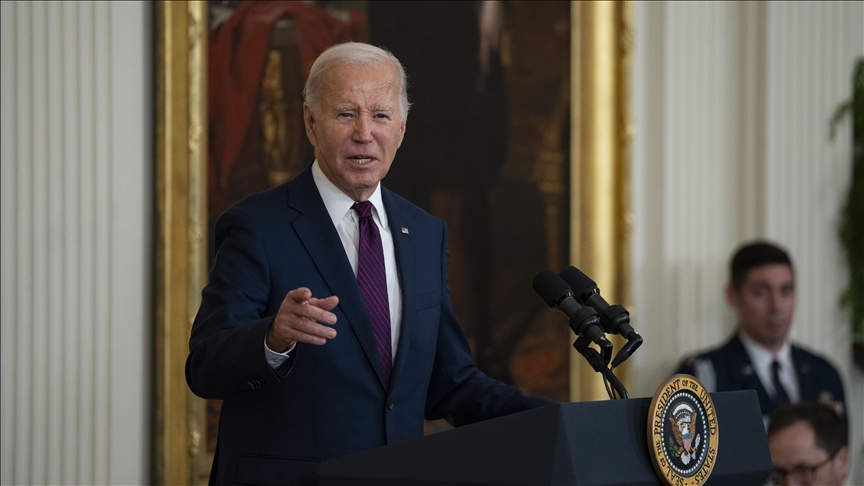Biden: 'I don't think we need a wider war in the Middle East'
US president says he holds Iran responsible for fatal attack 'in the sense that they're supplying weapons to the people who did it'

WASHINGTON
US President Joe Biden said Tuesday that he is not seeking to expand the conflict in the Middle East as he prepares to respond to a suicide drone attack that killed three American troops in Jordan last weekend.
"I don't think we need a wider war in the Middle East. That's not what I am looking for," Biden told reporters at the White House as he prepared to depart for two campaign events in the state of Florida.
Sunday's suicide drone attack killed three American troops and injured at least 34 others at Tower 22, a remote military installation in Jordan near the Syrian and Iraqi borders. An umbrella group of Iranian-backed militias calling itself the Islamic Resistance in Iraq has claimed responsibility.
The organization has been carrying out drone and missile attacks on US forces in the region for months amid Israel's ongoing war against the besieged Gaza Strip. Sunday's fatalities were the first to have resulted from the attacks. Most others were intercepted or resulted in minor injuries to American forces.
The Pentagon identified the deceased as Sgt. William Jerome Rivers, Spc. Kennedy Ladon Sanders and Spc. Breonna Alexsondria Moffett. All were killed when a suicide drone hit their housing unit.
The Biden administration has yet to determine which specific group within the wider organization was responsible for Sunday's attack, but it is continuing to investigate.
Biden said in response to a reporter's question that he holds Iran responsible for the fatal drone attack "in the sense that they're supplying weapons to the people who did it."
The president vowed to retaliate and said Tuesday he decided how he will respond. He did not offer specifics and it is unclear what form the US action will take. The White House declined to rule out strikes on Iran proper, saying it would not "telegraph punches."
National Security Council spokesperson John Kirby told reporters that it is "very possible" that the US retaliation would not be limited to a single strike and could take place over an extended period.
"It's very possible that what you'll see is a tiered approach here, not just a single action, but potentially multiple actions over a period of time," Kirby said aboard Air Force One. He declined to provide details.
An anonymous US official told ABC News that the retaliatory strikes would hit "multiple targets" and would be conducted "over the course of several days."
"These are going to be very deliberate targets -- deliberate strikes on facilities that enabled these attacks," the official, who spoke on condition of anonymity, told the news outlet.
The president spoke with the families of the deceased American troops earlier Tuesday and “made sure that those families knew that not only was that service and sacrifice going to be honored and respected, but that they would continue to get the support that they need,” said Kirby.
Biden will attend Friday’s return of the remains of the deceased troops during what is known as a “dignified transfer” ceremony at Dover Air Force Base in his home state of Delaware.
Kirby said that during the call, all of the service members' families “supported his presence there and so the president will be going to the dignified transfer.”
Anadolu Agency website contains only a portion of the news stories offered to subscribers in the AA News Broadcasting System (HAS), and in summarized form. Please contact us for subscription options.







